- Home
- Robin Hobb
Dragon Keeper Page 16
Dragon Keeper Read online
Page 16
Since Sintara had emerged from her case, she had known that everything in her life was wrong. Mercor’s proposal filled her thoughts with possibilities. Cautiously, unwilling to wake the others, she extended her puny wings and stretched her neck to allow herself to groom them. Had they grown at all? Nightly she waited for dark and performed this senseless ritual. Night after night, she pretended to herself that they had grown and would continue to grow. They were laughable things, scarcely a third of the size they should have been. Flapping them scarcely stirred a breeze, let alone lifted her bulk off the ground. Carefully, quietly, she folded them back to her body.
Wings made a dragon, she thought. Without wings, she could not hunt successfully, and she could never hope to mate. Indignation roiled suddenly through her. Only a few weeks ago, stretched out to sleep in a small band of sunlight, she had been rudely awakened when Dortean had tried to mount her. She had wakened with a roar of outrage. He was an orange, with stumpy legs and a thin tail. That he had even attempted to mate with her was humiliation enough. He was stupid and pathetic. To awaken to his muddy legs straddling her back as he hunched hopefully at her was a disgusting contrast to all her stored memories of dragons mating in flight.
Usually males fought for a female once she had indicated she was willing. And when the strongest male defeated his rivals and rose to join her in flight, he usually had to face the final challenge of dominating the female. Dragon queens did not mate with weaklings. Nor would a drake accept as a mate a docile female. Why mingle one’s bloodline with that of a bovine female, whose offspring might lack the true fire of a dragon? So to be straddled and humped by a dim-witted and deformed creature was an insult beyond bearing. She had rounded on him, snapping and slapping at him ineffectually with her dwarfed wings. At first, it had more inflamed than deterred him. He had continued to come at her, muddy necked and with his small eyes blazing with febrile lust. He had tried to clutch her to him, but a desperate swipe of her tail had knocked him off his feet and into the ever-present mud. Misshapen as he was, he could not easily right himself, and she had stormed away from him, down to the river, to wash his muddy paw prints from her back and haunches. She wished the acid waters of the river could have washed the humiliation from her as well.
She settled herself for sleep, but it did not come to her. Instead, memories flickered in her mind, filling her with sadness—memories of flight, of mating, of the distant beaches where her ancestors had laid their eggs and then basked on the hot sand. Terrible longings replaced her sadness. “Kelsingra,” she said softly to herself, and to her surprise, memories of the place flooded her. To describe it as a city by the river could not begin to do it justice. It had been a place constructed as much with the mind and heart as with stone and beam. The entire city had been laid out to reflect that both Elderling and dragon lived amicably there. The streets had been wide, the doors to the public buildings ample, and the art on those walls and around the fountains had celebrated the companionship enjoyed by both dragons and Elderlings.
And there was something else, she recalled slowly. There was a well there, a well deeper than the river that bordered the city. A bucket dropped into its depths sank past ordinary water to a deeper river of a most extraordinary substance. Even a tiny amount of it was dangerously intoxicating for an Elderling and possibly fatal for a human. But dragons could drink from it. She closed her eyes and let the old memories of other dragons rise to the forefront of her mind. An Elderling woman, gowned in green and gold, turned the crank on the windlass of a well and brought up a bucket full of gleaming silver drink. It was emptied into a polished trough, and another brought up, and another, until the vessel of polished stone brimmed with silver. In her dreams Sintara drank of it, the silver running through her veins, filling her heart with song and her mind with poetry. She allowed herself to float on the exhilarating memories, leaving the reality of her present life behind.
In this other remembered life, she was a queen dragon who preened herself, her silver-dripping muzzle spreading the fine sheen over her feathery scales. The green-and-gold robed woman rejoiced in letting her drink her fill of the silvery stuff. Together they left the well and strolled through the bright sunlit streets of the city. They passed lavish squares where fountains leaped and played, and brightly robed denizens of the city greeted her with bows and curtsies. The market was in full voice, filled with the songs of minstrels and the dickering of merchants and customers. Scents of cooking meat and sacks of spices, rare perfumes, and pungent herbs filled her nostrils. When she and her companion reached the river’s edge, they bid each other the fond farewells that old friends share. And then the queen dragon spread and limbered her gleaming scarlet wings. She crouched low on her powerful hindquarters and then sprang effortlessly into the air. Three, four, five beats of her wings and the wind off the river captured her and flung her aloft. She caught the current of warm summer air and soared on it.
The crimson queen blinked transparent lids over her whirling gold eyes. The wind slapped her, but the blow changed to a caress as she banked into it and rode it ever higher. Warm summer sunlight kissed her back, and the wide world spread out below her. It was a golden land, a wide river valley that gave, on both sides, to rolling hills dotted with oak groves and then to steeper cliffs and finally craggy mountains. On the flat lands along the river, cultivated fields of grain alternated with pastures where kine and sheep grazed. A fine road of smooth black stone bordered one side of the river, with tributary paths and byways wandering out to the more rural districts. Beyond the settlements of humanity, in the foothills and the narrow valleys that threaded back into the mountains, game was plentiful.
On the updrafts over the hills, other dragons soared, their glistening hides winking like jewels in the summer sunlight. One, a pale-green dragon with gold mottling on his haunches and shoulders, trumpeted to her. A thrill ran through her as she recognized her most recent mate. She answered his greeting and saw him bank to meet her. As soon as he had committed to his turn, she mocked him with a shrill call and beat her own wings powerfully to gain altitude. He gave a deep cry of challenge to her in response and came after her.
Rain. Cold sleeting rain suddenly spattered on her back with the force of a shower of pebbles. Sintara’s eyes flew open, the dream and the respite it had brought her shattered. In the next moment, the cold water was coursing down her flanks and sides. All around her in the darkness, dragons shifted and reluctantly huddled closer to one another. Sorrow vied with fury in her. “Kelsingra,” she promised herself aloud. “Kelsingra.”
In the darkness, the voices of the other dragons echoed hers.
Day the 17th of the Greening Moon
Year the 5th of the Independent Alliance of Traders
From Erek, Keeper of the Birds, Bingtown
To Detozi, Keeper of the Birds, Trehaug
In the sealed scroll case, a letter from the Bingtown Traders’ Council to the Rain Wild Traders’ Councils of Trehaug and Cassarick, suggesting that the Elderling Selden might go on a journey to discover the whereabouts of Tintaglia and persuade her to return and once more engage in the care of the young dragons.
Detozi,
I take up pen on behalf of your nephew Reyall to assure you that the Three Ships girl Karlin is indeed of good character, being industrious, dutiful to her parents, and able to both read and write. Although he is young to form such an attachment, I am willing to consent to my apprentice becoming engaged to her, so long as he pledges to me that they will not marry before he reaches his journeyman standing. I am pleased to give this testimonial to Karlin’s character and truly believe that in every way she can be as good a wife to him as any girl that is Trader born and bred. It is not, of course, a trivial decision, but I will remark that she comes from a family of five healthy children, and that both her sisters have wed and produced fine healthy offspring. In these times, a lad could do far worse than Karlin.
Erek
Chapter Six
Thymara’s Deci
sion
It was unusual for her mother to greet them with a smile on their return from their daily gathering. Even more unusual was for her to be fairly bursting with enthusiasm to speak to them. Thymara and her father were scarcely inside the door with their baskets before her mother spoke. Her eyes were bright with hope. “We’ve had an offer for Thymara.”
For an instant, both the young woman and her father froze as they were. Thymara could barely make sense of the words. An offer? For her? At sixteen years of age, she was long past the age when most Rain Wild girls were engaged. She knew that in some places in the world she would still be considered little more than a child. In others, she would be seen as just ripening for marriage. But in the Rain Wilds, folk did not live as long as other people. They knew that if a family bloodline was to continue, they’d best have their offspring spoken for as children, wed young as soon as they were fecund, and with child within the year. Even if a girl came from a poor family, if her looks were passable, she’d be spoken for by ten. Even the ugly girls had prospects by twelve.
Unless they were like Thymara, never meant to survive at all, let alone wed and produce children. Invisible to some folk, barely tolerated by others. Yet, here was her mother, eyes shining, saying there had been an offer for her. It was too strange. To accept a marriage offer when children were forbidden to her? It made no sense. Who would make such an offer and why would her mother even consider it?
“A marriage offer for Thymara? From whom?” Her father’s voice was thick with disbelief. Foreboding grew in Thymara’s heart as she studied her mother’s face. Her smile was thin. She did not look at either of them as she crouched by the baskets and began to select which items in them would become their evening meal. She spoke to the food they had gathered. “I said we’d had an offer for Thymara, Jerup. Not a marriage offer.”
“What sort of an offer, then? From whom?” her father demanded. A storm cloud of anger threatened in his words.
Her mother kept her aplomb. She didn’t look up from her task. “An offer of useful employment and a life of her own, apart from us in our declining years. As for ‘from whom,’ it comes directly from the Rain Wild Traders’ Council. So it’s nothing to sniff at, Jerup. It’s a wonderful opportunity for Thymara.”
Her father shifted his glance to Thymara and waited for her to speak. It was no secret in their little family that her mother worried constantly about her “declining years.” Plainly she believed that if they could shed responsibility for Thymara’s upkeep, they could save more for their old age. Thymara wasn’t certain that were so; she toiled every day alongside her father. Much of what he carried home, Thymara had harvested from the highest reaches of the tallest branches, sunny places where no one else dared climb. Would her mother think it such a relief when her father’s baskets were lighter each day? And if she were gone, who would do the day-today chores for them as their bodies aged and grew feeble?
Thymara didn’t voice any of that. “What sort of ‘useful employment’ did they offer?” she asked quietly. Thymara kept her voice unaccusing, or tried to. She dreaded what her mother might answer. There were all sorts of “useful employment” in Trehaug. There was always the most hazardous digging in the buried Elderling city. It was backbreaking labor, shovel- and barrow-work, often done in near darkness, and always with the possibility that a door or wall in the ancient buried city might suddenly give way and release an avalanche of mud. Usually, they chose boys for that task because they were stronger. “Unproductive” girls like her were most often given the task of maintaining the bridges that traversed the highest and lightest branches. There had been recent talk of a major expansion of the network of footbridges that connected the widely scattered settlements on both sides of the Rain Wild River and a lot of debate as to how far a bridge of chain and wood could successfully be stretched. With a sinking heart, Thymara suspected she would be part of the team that would find out. Yes. That was probably it. Everyone in their neighborhood knew of her prowess at climbing. And such work would require her to leave her home and live close to the project. It would take her far from her parents, and perhaps even promise a swift end to her existence. Her mother might welcome that.
Her mother’s voice was falsely cheery as she began her tale. “Well. There was a Trader in the trunk market today, dressed very fine in an embroidered robe, and with a scroll from the Rain Wild Council. He said he had come looking for strong young people, for people without spouses or children, to undertake a special task in ser vice to Trehaug and to all the Rain Wilders. The pay would be very good, he said, and an advance would be given immediately, even before the task was begun, and at the end, when the workers returned to Trehaug, they would be well rewarded for their efforts. He said he expected many people would wish to be chosen, but that the candidates must be exceptionally hardy and tough.”
Thymara stifled her impatience. Her mother could never simply state something. She told a story or a piece of news by talking all around it. Asking her questions would simply take her down yet another side track. Thymara pressed her teeth together and held her tongue.
Her father didn’t have her patience. “So it’s not a marriage offer; it’s an offer of work. Thymara already has work. She helps me gather. And why should she wish for ‘a life of her own,’ as you put it, away from us? We are not getting any younger, and if there is a time when I would want her by my side, it is, as you put it, during our ‘declining years.’ Who else do you think will take care of us? The Rain Wild Council?”
Her mother pressed her lips together tightly, and the lines in her brow deepened. “Oh, very well, then,” she said bitterly. “I’ll say no more. I see I was foolish to listen to the man at all, or to think that Thymara might wish to have a bit of adventure in her life.” Almost quivering with indignation, she gave them a sour look and radiated silence and anger.
The main room of their house was tiny, but as her mother set the food on the woven pads onto the table mat, she pretended to ignore them. Thymara and her father both kept silent. Asking for more information would only increase her mother’s pleasure at withholding it from them. Feigning disinterest would win it more quickly. So her father filled the washbasin, used it, flung the dirty water out the window, and then refilled it for her. He passed it to her, saying casually, “I think that instead of harvesting tomorrow, we should make an expedition to bring back some new plants. Shall we rise early?”
“I suppose that would be wisest,” Thymara replied cautiously.
Her mother couldn’t stand that they appeared to be having a simple conversation. She spoke to the kura nuts she was grinding into paste. “I suppose I know nothing at all about my daughter. I thought she would be thrilled to work with the dragons. She seemed so interested in them when she was younger.”
Her father made a tiny hand motion at Thymara, cautioning her to keep silent so her mother would keep talking. Thymara couldn’t. “The dragons? The dragons I saw hatch, the abandoned dragons? I’d be working with them?”
Her mother gave a small, satisfied sniff. “Apparently not. Your father thinks it better that you remain here, to live with us until we shrivel up and die, and then for you to be alone for the rest of your life.” She set the bowl of mashed kura nuts on the food mat and placed a plate of weddle stalks beside it. She had baked flatbread at the community oven earlier in the day. There were six flats, two for each of them. It was not a plentiful or elaborate meal, but it would “fill the belly” as her father would say. Hungry as Thymara had been but a few seconds ago, she didn’t even want to look at it now.
But her father had been right. Thymara had fed her mother’s fury, not slaked it with her question, and now the woman burned with a cold and righ teous fire. She smiled and made small talk during the meal, as if all were well and she were merely a subservient wife conceding to her husband’s demands. Thymara asked about the offer twice more, unable to resist the bait her mother had dangled, and each time her mother told her that surely Thymara would not want to l
eave home and family and she would say no more on such a silly topic.
All Thymara could do was simmer in her seething curiosity.
As soon as the meal was ended, Jerup announced he had errands and left the house. Thymara tidied away the remains of the meal, trying not to meet her mother’s resentful stare. As soon as she could, she left the house and the little walkways that connected it to its neighbors. She clambered higher in the canopy. She needed to think, and she’d do that best if she were alone. Dragons. What could the dragons possibly have to do with an offer for her?
Thymara had seen the dragons twice in her life. The first time had been five years ago, when Thymara had been almost eleven. Her father had taken her down the trunk and across the Necklace Bridges and then down, down, all the way to the earth. The trail that led to the hatchery by the riverbank had been trodden into muck by the passage of so many feet. That had been Thymara’s first visit to Cassarick.
The memory of watching them emerge haunted her still. Their wings had been weak, and their flesh was thin on their bones. Tintaglia had come and gone, bringing fresh meat to feed them. Her father had felt sympathy for the poor misshapen creatures. A rueful smile twisted her mouth as she recalled his scrambling flight from one newly hatched dragon.
In the early days following the hatch, everyone had hoped that the dragons who survived would grow and prosper. Her father had been employed for a time as a hunter to help feed the dragons. But the densely forested Rain Wilds could not long support such large and ravenous carnivores. The best efforts of the hunters could not create more game than there was. The Council had become more and more penurious about paying for the hunters’ work. Her father soon quit that occupation and returned to their home in Trehaug. He told a sad tale of the sickly dragons quickly dying off. Those who remained grew larger, but not heartier or more self-sufficient. “Sometimes Tintaglia comes, bringing meat, but one dragon cannot feed so many. And her shame for those poor creatures radiates from her. It will come to a bad end for all of us, I fear.”

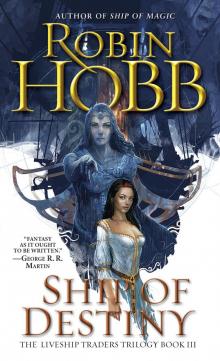 Ship of Destiny
Ship of Destiny Golden Fool
Golden Fool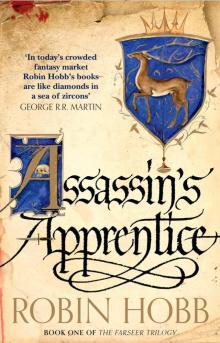 Assassins Apprentice
Assassins Apprentice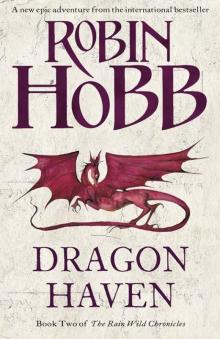 The Dragon Keeper
The Dragon Keeper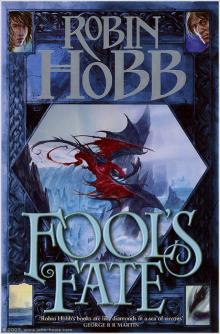 Fools Fate
Fools Fate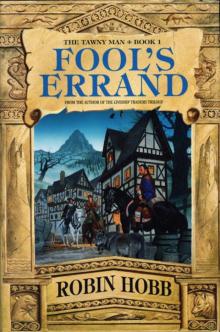 Fools Errand
Fools Errand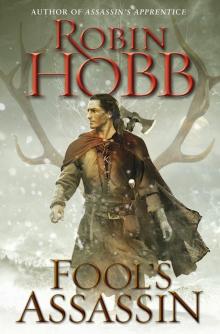 Fools Assassin
Fools Assassin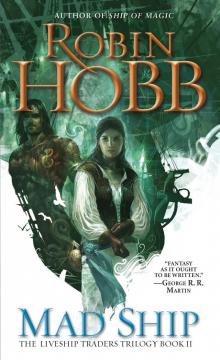 The Mad Ship
The Mad Ship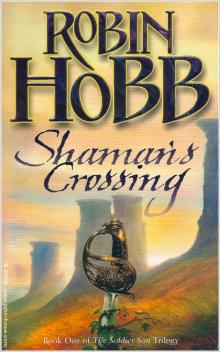 Shamans Crossing
Shamans Crossing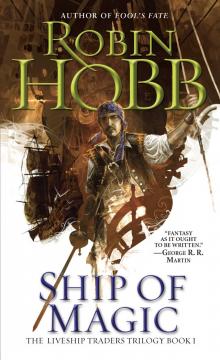 Ship of Magic
Ship of Magic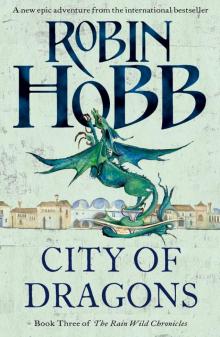 City of Dragons
City of Dragons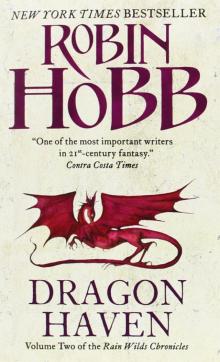 Dragon Haven
Dragon Haven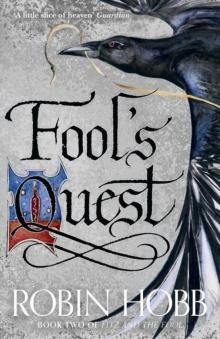 Fools Quest
Fools Quest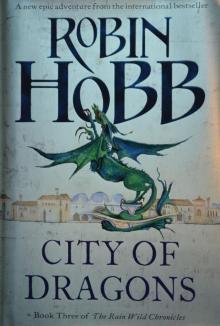 Blood of Dragons
Blood of Dragons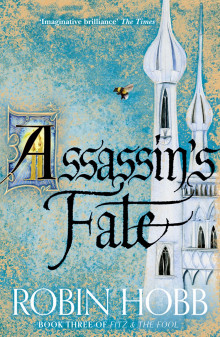 Assassin's Fate
Assassin's Fate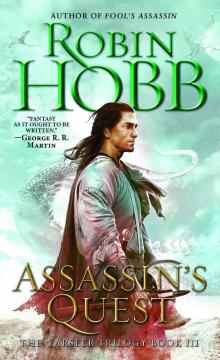 Assassins Quest
Assassins Quest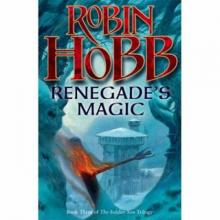 Renegades Magic
Renegades Magic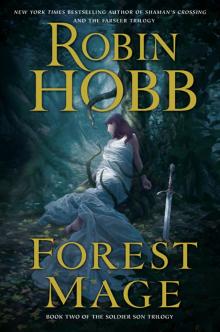 Forest Mage
Forest Mage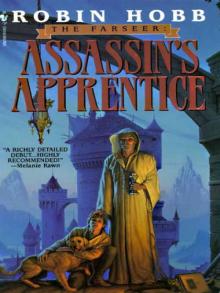 Assassin's Apprentice tft-1
Assassin's Apprentice tft-1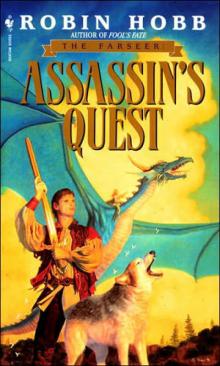 Assassin's Quest tft-3
Assassin's Quest tft-3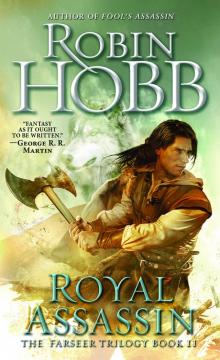 Royal Assassin
Royal Assassin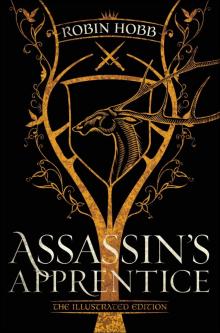 Assassin's Apprentice (The Illustrated Edition)
Assassin's Apprentice (The Illustrated Edition)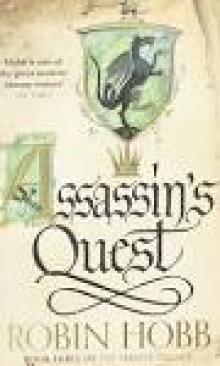 Assassin's Quest (UK)
Assassin's Quest (UK)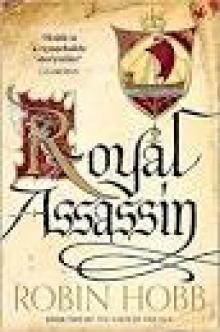 Royal Assassin (UK)
Royal Assassin (UK)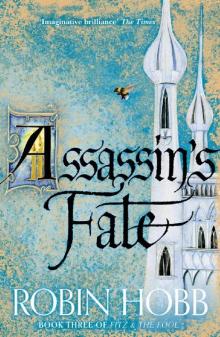 FF3 Assassin’s Fate
FF3 Assassin’s Fate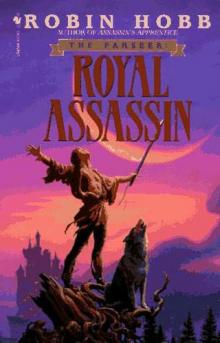 Royal Assassin tft-2
Royal Assassin tft-2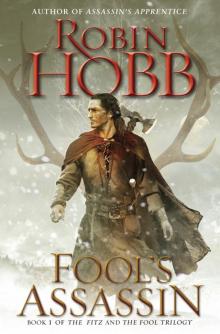 Fool’s Assassin: Book One of the Fitz and the Fool Trilogy
Fool’s Assassin: Book One of the Fitz and the Fool Trilogy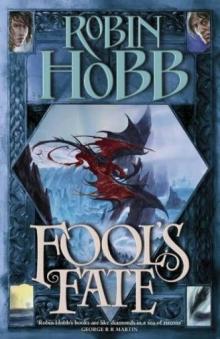 Fool's Fate ttm-3
Fool's Fate ttm-3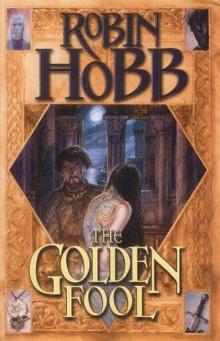 The Golden Fool ttm-2
The Golden Fool ttm-2 The Liveship Traders Series
The Liveship Traders Series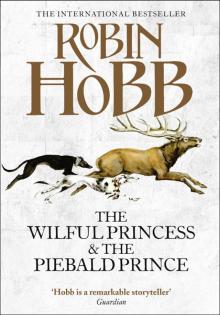 The Wilful Princess and the Piebald Prince
The Wilful Princess and the Piebald Prince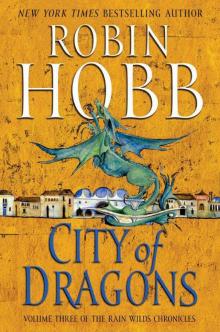 City of Dragons rwc-3
City of Dragons rwc-3 The Tawny Man 1 - Fool's Errand
The Tawny Man 1 - Fool's Errand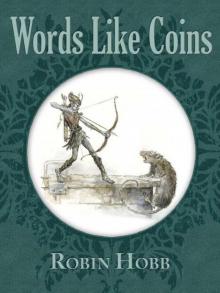 Words Like Coins
Words Like Coins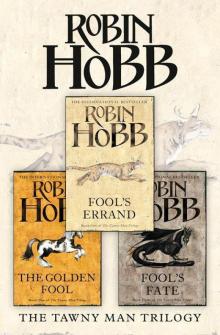 The Complete Tawny Man Trilogy Omnibus
The Complete Tawny Man Trilogy Omnibus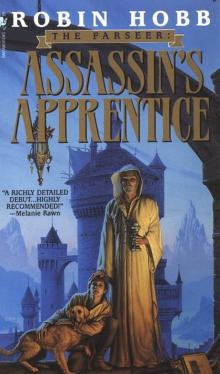 Farseer 1 - Assassin's Apprentice
Farseer 1 - Assassin's Apprentice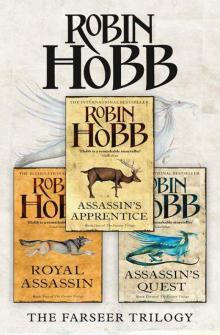 The Complete Farseer Trilogy Omnibus
The Complete Farseer Trilogy Omnibus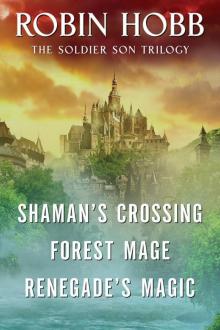 The Soldier Son Trilogy Bundle
The Soldier Son Trilogy Bundle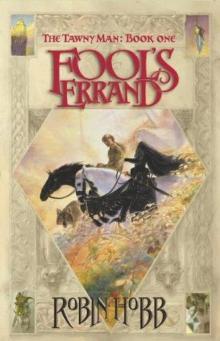 Fool's Errand ttm-1
Fool's Errand ttm-1 Blue Boots
Blue Boots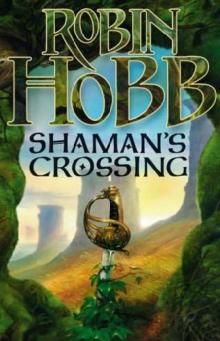 Shaman's Crossing ss-1
Shaman's Crossing ss-1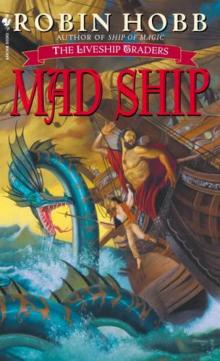 Mad Ship
Mad Ship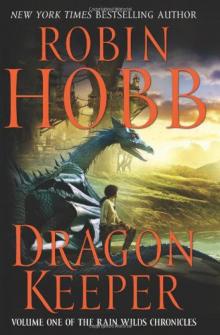 Dragon Keeper
Dragon Keeper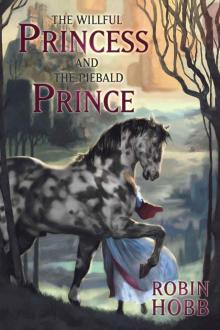 The Willful Princess and the Piebald Prince
The Willful Princess and the Piebald Prince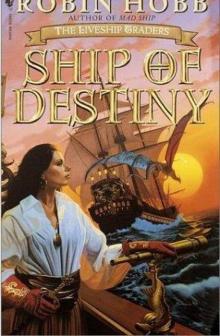 Ship of Destiny tlt-3
Ship of Destiny tlt-3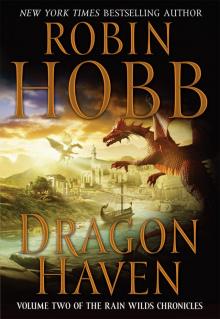 Rain Wild Chronicles 02 - Dragon Haven
Rain Wild Chronicles 02 - Dragon Haven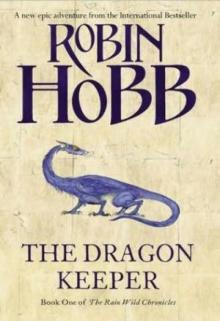 The Dragon Keeper trwc-1
The Dragon Keeper trwc-1 The Triumph
The Triumph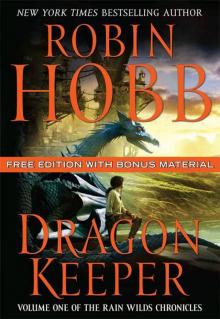 Dragon Keeper Free Edition with Bonus Material
Dragon Keeper Free Edition with Bonus Material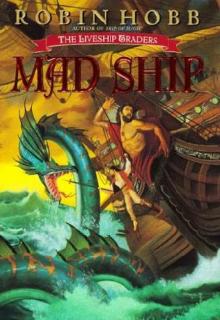 Mad Ship tlt-2
Mad Ship tlt-2 The Inheritance and Other Stories
The Inheritance and Other Stories Tawny Man 02 - Golden Fool
Tawny Man 02 - Golden Fool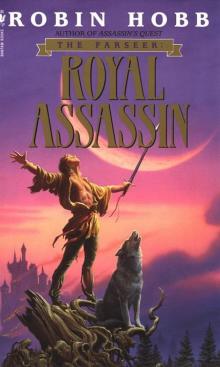 Farseer 2 - Royal Assassin
Farseer 2 - Royal Assassin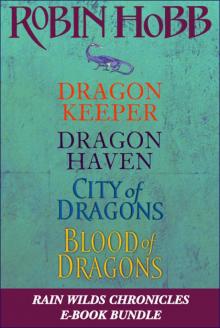 Rain Wilds Chronicles
Rain Wilds Chronicles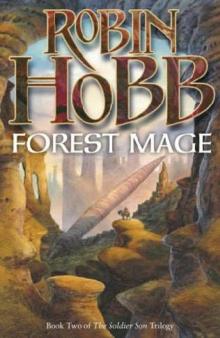 Forest Mage ss-2
Forest Mage ss-2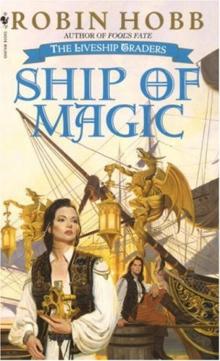 Ship of Magic lt-1
Ship of Magic lt-1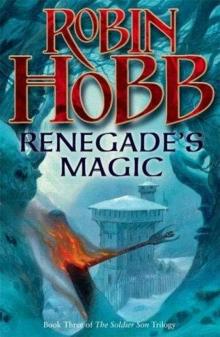 Renegade's Magic ss-3
Renegade's Magic ss-3